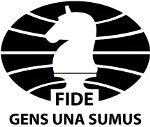Latin America and its need for chess projects as an expression of educational innovation – Part 1
by Dr. Uvencio Blanco Hernández
Latin America, more than 650 million inhabitants
The term Latin America (Latin America) has not yet been in existence for a century and a half. It refers to an ethnic and geographical construct that unites a region of the American continent through languages derived from Latin such as Spanish, Portuguese and French. This implies a register of more than 650 million inhabitants, distributed among 28 countries, which in turn total a surface area of slightly more than 20 million square kilometres.
In terms of educational levels, there are significant differences and gaps (such as literacy levels), which have not yet been narrowed in favour of greater participation in education. It is worth noting that even with the internal manifestations in terms of the demand for better opportunities and higher quality education, Chile remains the Latin American benchmark in terms of the quality of its education system.
Although primary education is compulsory in all members of this sub-region, it is important to point out that most of its education systems have been trying out innovative educational projects that aim to optimise this process in the different member countries. Many of them also aspire to achieve better results in the PISA tests, in which they have traditionally been lagging behind in relation to the countries of Central and Northern Europe.

What do we mean by educational innovation?
We will now present three definitions provided by Ríos-Cabrera, P., and Ruiz-Bolívar, C. (2020), which represent different approaches to this concept, as indicated below:
- UNESCO (2014) understands educational innovation as “a deliberate and planned act of problem solving, which aims to achieve higher quality in student learning, overcoming the traditional paradigm. It implies transcending academicist knowledge and moving from passive student learning to a conception where learning is interaction and is constructed among all” (p. 3).
- Gros and Lara (2009) define innovation as “the process of creating new knowledge, products and processes, which is an essential part of the work of organisations as it is an essential value for the society of the 21st century” (p. 225).
- Carbonell (2002) understands educational innovation as: “(a) set of ideas, processes and strategies, more or less systematised, by means of which it is attempted to introduce and provoke changes in current educational practices” (pp. 11-12).
Chess in the Latin American context
In Latin America, primary education is compulsory in all its members, so it is important to point out that most of its educational systems have been trying out innovation projects aimed at optimising this process in the different member countries, one of them being chess in schools. In relation to chess as a sport, all Latin American countries have chess organised around chess federations and associations which, in turn, are affiliated to the International Chess Federation. In addition, and in relation to chess, all Latin American countries have chess organised around chess federations and associations which are affiliated to the International Chess Federation.
It is in this context that the International Chess Federation’s Chess and Education Commission (EDU) has been encouraging the different governments and their Ministries of Education to implement school chess projects in their different educational systems, with priority given to pre-school and primary education.
These proposals are aimed at the massification and dissemination of the laws, principles and rules of the game of chess, aimed at children and adolescents at the pre-school and elementary school levels in the different provinces of affiliated federations. For example, through the study and systematic practice of chess, the aim is to support the application of the development of thinking, as a fundamental cross-cutting axis of contemporary education. In this sense, it is pertinent to highlight that in the work Why chess in schools? (Blanco, U. 1998), the author states:
“The educational role of chess lies in the fact that it trains pupils within a framework of rules and meanings, disciplining thought, contributing to the development of character and virtuous action …. Chess, as a discipline that generates values and attitudes, with a long historical trajectory and universal distribution, should be considered a cultural right and therefore the heritage of humanity”.
To be continued …


